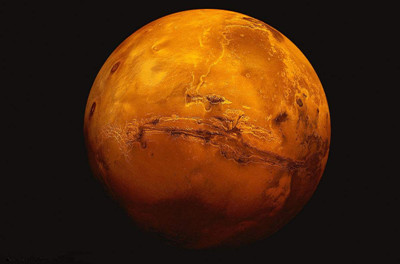(单词翻译:单击)
听力文本
This is Scientific American — 60-Second Science. I'm Christopher Intagliata.
A humid bathroom is the perfect habitat for mold. But there are ways to avoid it. "We can just open the window and let some fresh air in!" Not so easy on a space station though, as astrobiologist Petra Schwendner of the University of Edinburgh explains.
"It has been seen on the international space station or on the MIR that these microorganisms can accumulate. I've seen pictures where you could see this corrosion caused by bacteria or basically an accumulation of fungus behind wet towels."
So as we set our sights on Mars, what might grow in the spacecraft—essentially a human-scale petri dish—during the year-and-a-half-long flight?

The Mars500 habitat in Moscow simulated that trip, with six crew members confined inside. And Schwendner and her team tested microbial samples of the habitat over time. They found what you might expect: a lot of human-related bacteria and fungi, mostly at levels deemed safe for life in space. But they also noticed a decline in microbial diversity over time—which could indicate a less-than-healthy microbial community that's potentially more prone to takeover by hostile bacteria.
"Seeing this decrease basically is for us an important point or proof that continuous monitoring is an important fact and is really required to basically maintain or be able to maintain a healthy environment." The study is in the journal Microbiome.
When we do rocket to the Red Planet, it'll be impossible to keep our spacecraft completely sterile. Because humans are leaky animals. The real question might be how we'll keep our many microbes...from colonizing Mars.
Thanks for listening for Scientific American — 60-Second Science Science. I'm Christopher Intagliata.
参考译文
这里是科学美国人——60秒科学。我是克里斯托弗·因塔利亚塔。
对霉菌来说潮湿的浴室是完美的栖息地。但是有方法可以避免霉菌滋生。“我们只需要打开窗户,让新鲜空气进来!”爱丁堡大学的天体生物学家佩特拉·史温德内尔解释道,但是在空间站这么做可不太容易。
“在国际空间站或和平号上,就可以看到这些微生物聚集在那里。我看到过一些图片,在图片上你能看到细菌引起的腐蚀或真菌堆积在湿毛巾后面。”
所以,当我们把目光转移到火星,在长达一年半的飞行过程中,宇宙飞船中——基本上是人类大小的培养皿里——会生长些什么呢?
火星500在莫斯科的实验基地模拟了这一旅程,居住舱中有6名机组人员。史温德内尔和团队测试了居住舱中的细菌样本随时间推移所发生的变化。他们的发现和人们的预期相一致:在太空中,许多与人类有关的细菌和真菌,大多被认为处于对生命无危险的水平。但是他们也注意到,随着时间的推移,微生物的多样性在减少,这表明不太健康的微生物群落可能更易被敌对细菌接管。
“对我们来说,见证微生物多样性的减少非常重要,它证明了持续监测是重要事实,也是维护健康环境所必需的。”这项研究结果发表在《微生物学》期刊上。
我们向火星发射火箭时,保持宇宙飞船完全无菌是不可能的。人类不是“密闭”的。真正的问题或许在于,我们如何防止与人类相关的多种微生物殖民火星。
谢谢大家收听科学美国人——60秒科学。我是克里斯托弗·因塔利亚塔。
译文为可可英语翻译,未经授权请勿转载!
重点讲解
重点讲解:
1. set one's sights on 以…为奋斗目标;志在必得;决心做到;
例句:He has set his sights on acquiring the controlling interest in the company.
他的目标是取得能支配这家公司的股权。
2. be prone to 有(不好的)倾向的;易于…的;很可能…的;
例句:For all her experience, she was still prone to nerves.
尽管有经验,她还是容易紧张。
3. be able to do sth. 可以…的,能够…的;
例句:Any knowledgeable wine merchant would be able to advise you.
任何一个懂行的葡萄酒商人都可以给你提出建议。
4. keep sb. from doing sth. 阻止(或防止、阻碍)…做;
例句:The special medicine can keep him from worrying.
那种特殊的药能抑制他的忧虑。


